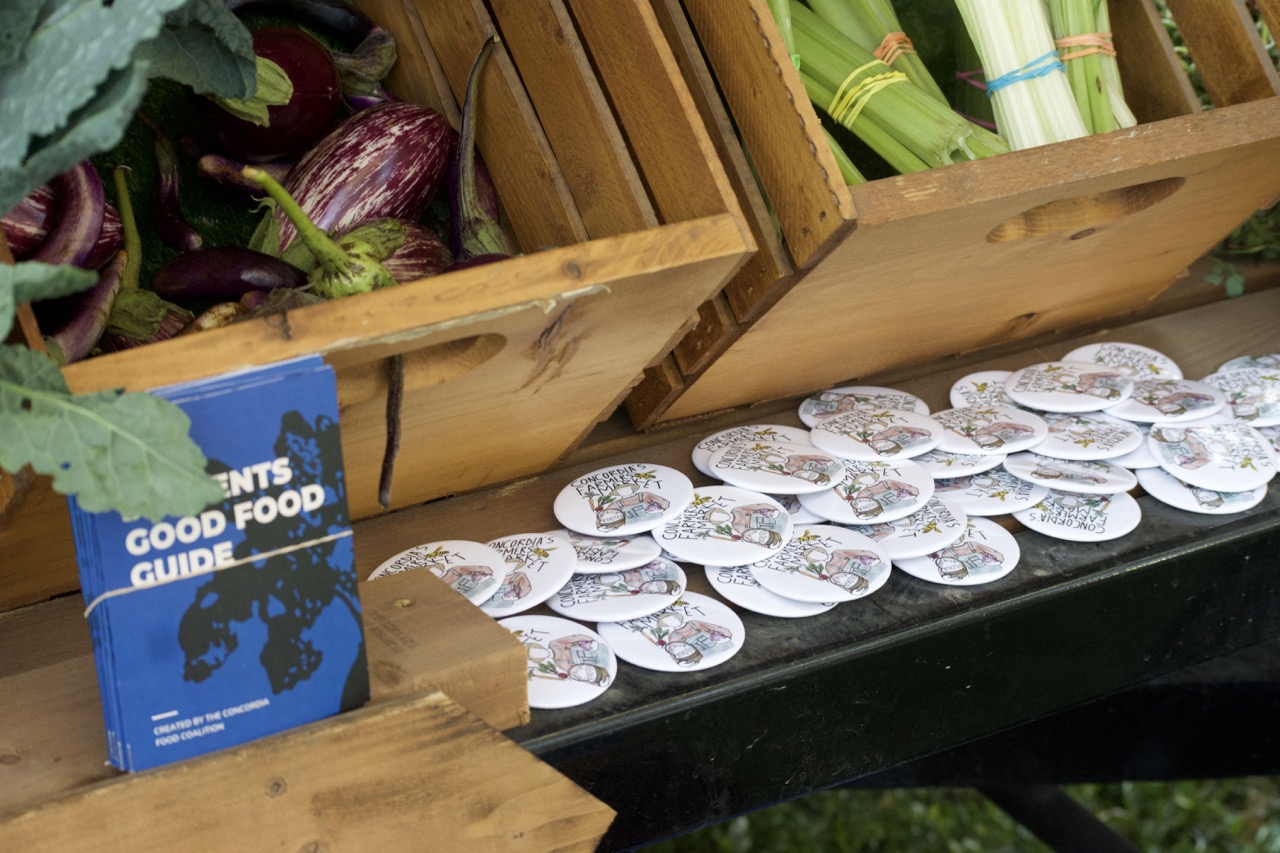The market wants to promote sustainability by offering local and organic food to Concordia students
The Concordia Farmers’ Market made its comeback on both campuses for the fall semester.
Until the last week of October, vendors will offer local and organic products to students. The market takes place from 4 to 7 p.m. on Wednesdays at Loyola and on Thursdays at the downtown campus.
Lacey Boudreau, one of the coordinators for the Farmers’ Market, explained that it started as one of the many projects within the Concordia Food Coalition. Founded in 2013, the Food Coalition aims to promote a more sustainable food system at Concordia.
“It’s one of the pieces of the puzzle that we’re trying to put together for a new food enterprise,” said Boudreau. “We want to give students the opportunity to have very direct access to local organic food every week.”
In front of the F.C. Smith Building at Loyola and the J.W. McConnell Building downtown, local vendors from the neighbouring area sell their organic products. Among them are the vendors from Co-op CultivAction, a food cooperative that is part of the Concordia Food Coalition.
Caleb Woolcott, a member of CultivAction, said the co-op provides food from its mixed diverse vegetable garden with the goal of making fresh local produce accessible to all.
Through their community-supported agriculture program, people can order baskets at the beginning of the season and come to the Farmers’ Market to pick up fresh vegetables every week. Vegetables are sourced locally from their garden that six staff members are responsible for, along with volunteers and interns.
A part of the garden also serves for the development of permaculture gardening techniques and is used by students to learn and practice sustainable agriculture.
“Urban agriculture, a lot of it is about community engagement, and there is a really wonderful community around the garden,” said Woolcott.
Nico Schutte, co-founding member, explained CultivAction’s main goal is to work on food sovereignty within the University.
“We’re trying to have a circular food economy in Concordia,” said Schutte. “The idea is to divest in the international factory farm food system that clearly does not feed the majority of people and only contributes to climate change.”
Though the market closes in November to reopen next summer, the team hopes to be active during the winter semester.
“There is the possibility of some pop-up holiday markets that we’ve been talking about or different things happening throughout the winter until we start again next summer,” said Boudreau.
